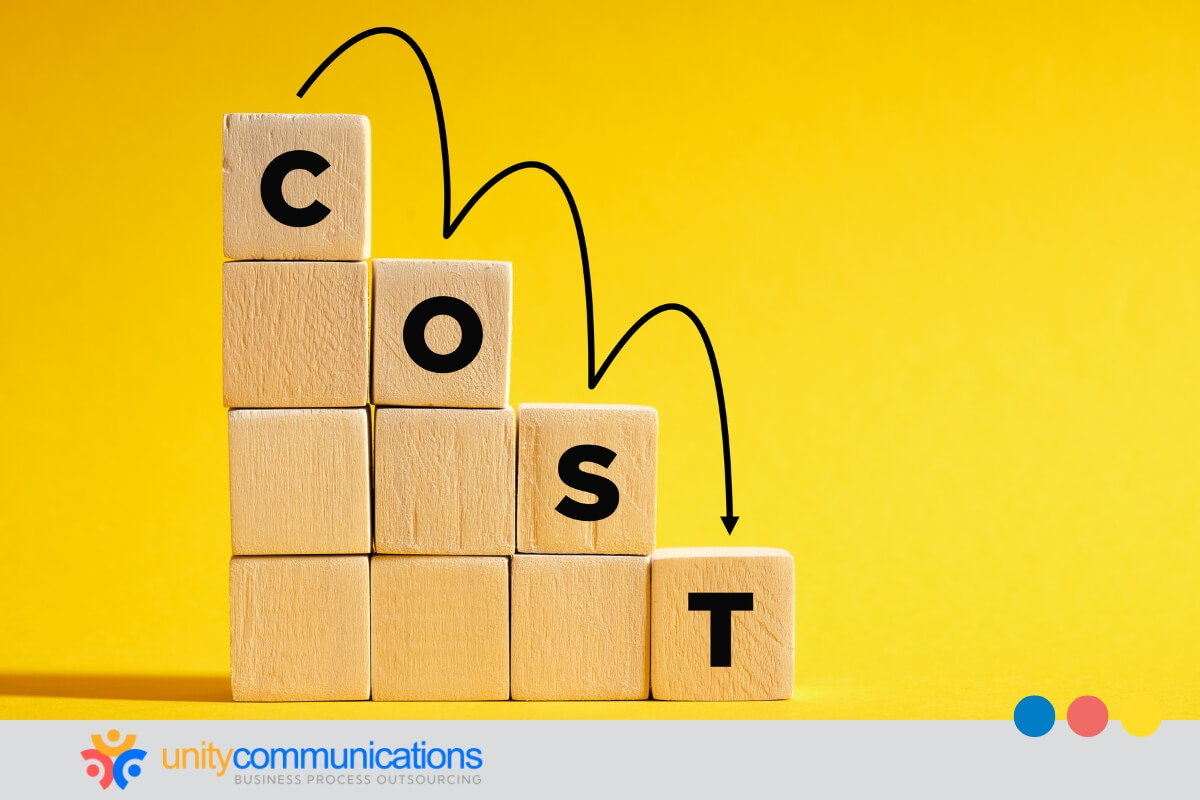IN THIS ARTICLE
Table of Contents
The global business landscape continuously evolves to mitigate its significant environmental impact. Companies of all sizes and industries embrace eco-friendly practices to ensure sustainability and profitability.
The same goes for business process outsourcing (BPO) organizations. They adopt innovative strategies to minimize their carbon footprint while maintaining operational efficiency and service quality.
Keep reading to discover how BPO vendors transform into socially responsible businesses through sustainable practices.
The role of environmental sustainability in BPO

Many local and international laws have been established to guide businesses in mitigating their adverse industrial effects on the environment. To ensure compliance, BPO companies embrace sustainable practices and innovative technologies for greener and more cost-effective operations.
Besides guaranteeing they reduce their environmental impact, what do BPO companies gain from committing to a sustainable future? Here’s a closer look at the benefits they achieve:
- Boosted cost savings. Implementing energy-efficient lighting, reducing paper usage through digitalization, and optimizing remote work cut operating expenses. This reduction allows providers to offer services at competitive pricing and quality.
- Improved regulatory compliance. Many countries enact environmental laws covering all industries. BPO vendors that integrate environmental, social, and governance (ESG) measures into their operations avoid significant fines and penalties.
- Enhanced talent acquisition and engagement. Eco-friendly BPO firms attract and motivate employees with shared values regarding corporate social responsibilities. Studies reveal that workers find an employer with a sustainability program more appealing, while executives consider climate efforts an effective tool for retention.
- Mitigated risks. Natural calamities and environmental issues pose risks to BPO operations, potentially exposing them to supply chain disruptions and high disaster recovery costs. BPO providers utilize sustainable practices and solutions to proactively address these challenges and promote business continuity.
- Improved brand reputation. Businesses seek environmentally responsible BPO partners, especially when customers consider sustainability a top purchase criterion. Client organizations are more likely to choose third-party manufacturers that can match their strategic approach to produce eco-friendly products.
- Long-term viability. Conserving resources and minimizing environmental impacts make BPO operations effective in the long run. Investing in sustainable technologies and methods positions providers for prolonged growth in an environmentally conscious future.
Sustainable practices to boost BPO operations

Third-party vendors conduct various BPO environmental sustainability programs to achieve the abovementioned benefits. They carry out the following best practices for sustainable operations daily:
- Use energy-efficient cooling systems and hardware for data centers. Providers leverage server virtualization tools to consolidate resources and reduce energy consumption.
- Adopt renewable energy sources such as solar panels to power office space and equipment.
- Boost employee awareness of eco-friendly practices. BPO companies host seminars and provide knowledge bases to remind workers to implement environmental measures.
- Optimize robust document management systems to lessen paper usage. Contractors also use cloud-based solutions for electronic document storage, retrieval, and sharing.
- Utilize artificial intelligence (AI) and robotic process automation (RPA) tools to automate workflows and data management activities. This helps reduce reliance on paper forms
- Implement duplex printing by default when paper-based documents are critically needed. BPO companies ensure all employees exercise mindful printing practices through on-site instructions or infographics.
- Partner with certified e-waste disposal companies to properly recycle or dispose of electronic equipment at the end of its lifecycle. BPO firms also opt for sustainably sourced office supplies whenever possible.
- Incorporate the three Rs of waste management into BPO operations. Providers encourage employees to reduce waste generation, reuse items, and recycle diligently.
- Enable green commute initiatives and flexible work setups. Providers encourage their employees to carpool, cycle, or use public transportation to help cut carbon emissions. They also offer remote or hybrid work options to further minimize commuting.
- Embrace sustainable office design. BPO organizations maximize natural light and install ventilation in their facilities. They also use energy-efficient lighting fixtures and appliances when setting up or renovating their office spaces.
- Work closely with BPO clients to develop and implement sustainable practices. Providers coordinate with them to set environmentally friendly strategies and initiatives to ensure eco-friendly operations.
- Track and analyze environmental sustainability performance. BPO companies establish key performance indicators (KPIs) to monitor their green initiatives, such as recycling rate and total energy usage. These metrics assist them in identifying areas for improvement and complying with legal requirements.
- Use digital collaboration platforms and communication tools to minimize travel. Videoconferencing, instant messaging, and virtual collaboration tools reduce the need for physical meetings, leading to significant environmental benefits.
- Implement green procurement policies. BPO vendors ensure that all purchased goods and services meet specific environmental criteria. They source from suppliers who follow sustainable practices, choose energy-efficient office equipment, and opt for recycled or biodegradable products.
Challenges BPO companies face when practicing sustainability

Although environmental sustainability brings significant advantages, implementing the best practices still involves challenges for service providers.
As part of the BPO company’s long-term planning, it notes these potential issues:
- Initial investment in sustainable technologies is costly, especially for small businesses with limited financial resources. Developing robust methodologies to run effective eco-friendly operations requires additional skills and resources. The high upfront expenses impede adoption despite the promised cost savings.
- Implementing sustainable practices includes complex changes to business processes, technology systems, and organizational structures. Coordinating these modifications across departments is difficult for large, decentralized businesses.
- Environmental policies and procedures vary across countries. Legal requirements and regulations are also subject to frequent updates. Studying and adhering to relevant laws complicates sustainability initiatives, mainly when operating worldwide.
- Engaging stakeholders, including employees, clients, and partners, in sustainability efforts can be challenging due to different perspectives. Establishing consensus and managing competing interests requires transparent and centralized communication.
- Sustainable practices can result in operational disruptions and technological vulnerabilities. Identifying and mitigating these issues while pursuing sustainability goals requires thorough planning and risk management strategies.
- BPO firms operate in a highly competitive market that highlights cost, quality, and efficiency. They might struggle to balance sustainability objectives with competitive pressures and demands, especially if clients do not prioritize sustainability.
The bottom line
Environmental sustainability efforts are crucial in enhancing daily BPO activities. Adopting renewable energy sources and eco-friendly measures enables service providers to reduce operating expenses, retain clients and employees, and attain a competitive edge.
BPO companies must properly execute sustainable practices to address related challenges, maximize the benefits, and achieve viability in the long run. This steady growth pushes them to deliver cost-effective support services.
Do you want to know how a reliable BPO provider practices sustainability? Let’s connect and share actionable insights on environmental efforts. We can also discuss your potential options for working with Unity Communications.





